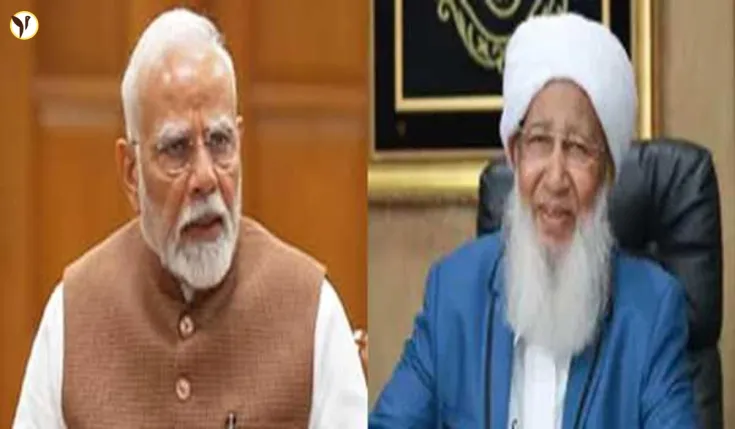The Mufti's Voice Amidst Escalating Tensions
The recent escalation of violence between India and Pakistan has tragically claimed the lives of innocent civilians, including Raj Kumar Thappa, the Additional District Development Commissioner of Rajouri. This heartbreaking loss has sparked widespread grief and condemnation, with prominent figures like Mehbooba Mufti, leader of the People's Democratic Party (PDP), voicing their deep sorrow and calling for an end to the cycle of violence. This article explores the role of various Muftis in responding to this crisis and the broader context of the escalating conflict.
The Death of Raj Kumar Thappa and the Condemnations
Mehbooba Mufti, in a deeply emotional statement shared on X (formerly Twitter), expressed her profound sadness over the death of Raj Kumar Thappa, who perished due to shelling from across the border. She powerfully highlighted the devastating human cost of the conflict, particularly the impact on innocent civilians caught in the crossfire. Mufti's statement underscored the urgent need for peace and an end to the retaliatory cycle of violence that has already claimed countless lives.
She wasn't alone in her condemnation. Jammu and Kashmir Chief Minister Omar Abdullah also mourned Thappa's death, expressing his shock and sadness at the loss of a dedicated public servant. The shelling in Rajouri, which damaged civilian homes and properties, further underscored the indiscriminate nature of the violence.
- Key takeaway: The tragic loss of Raj Kumar Thappa and other civilians serves as a stark reminder of the human cost of the escalating conflict between India and Pakistan.
Mufti's Calls for Peace and Political Intervention
Mehbooba Mufti's statements went beyond expressions of grief. She strongly advocated for a political solution to the conflict, emphasizing the futility of military action in achieving lasting peace. She appealed to both Indian and Pakistani leadership to prioritize dialogue and de-escalation, urging them to recognize the immense suffering of the people of Jammu and Kashmir who bear the brunt of the conflict.
Mufti's calls for political intervention are echoed by other prominent figures. Mirwaiz Umar Farooq, the chief Muslim cleric of Kashmir, also called for de-escalation and restraint, highlighting the immense suffering endured by Kashmiris caught in the crossfire. He urged both countries to prioritize peace over conflict.
- Key takeaway: Several prominent figures, including Mehbooba Mufti and Mirwaiz Umar Farooq, are advocating for political solutions and de-escalation of the conflict, emphasizing the devastating impact on innocent civilians.
The Grand Mufti's Support for India's Anti-Terrorism Stance
In contrast to the calls for de-escalation, the Grand Mufti of India, Sheikh Abubakr Ahmad, issued a letter to Prime Minister Narendra Modi expressing unwavering support for India's stance against terrorism and extremism. He praised the government's efforts to combat terrorism, particularly in regions like Kashmir, highlighting the importance of these measures for national security and global peace. This demonstrates a diverse range of opinions within religious leadership regarding the current conflict.
Sheikh Abubakr Ahmad's statement emphasizes the need for national unity in the fight against terrorism, urging all citizens regardless of their background or faith to stand together in support of national efforts. This contrasts with the calls for peace and de-escalation, showing the complexity of perspectives surrounding the crisis.
- Key takeaway: The Grand Mufti's statement reflects a different perspective, highlighting the importance of combating terrorism and the need for national unity in the face of security threats.
Mufti Mudasir Ahmad Qadri's Plea for Peace
Mufti Mudasir Ahmad Qadri, Chairman of Karwani e Khatmi-e-Nubuwwat International, expressed grave concern over the escalating tensions and near-war situation between India and Pakistan. He strongly condemned the use of war as a solution, highlighting its devastating consequences for human lives and livelihoods. He specifically emphasized the suffering of those residing in the border regions, urging both countries to find a peaceful resolution through dialogue and restraint.
Mufti Qadri's appeal underscores the shared concern among various religious leaders for the well-being of the people caught in the conflict. He further expressed concern about the house detention of Mirwaiz Dr. Molvi Mohammad Umar Farooq, advocating for his release and the freedom to practice his religious duties.
Conclusion
The situation along the Line of Control continues to be volatile, demanding urgent attention from both nations. While the Grand Mufti's support for India's anti-terrorism efforts reflects one perspective, the overwhelming call from other prominent religious figures, including Mehbooba Mufti, Mirwaiz Umar Farooq and Mufti Mudasir Ahmad Qadri, is for immediate de-escalation and a prioritization of political dialogue to prevent further loss of innocent lives. The voices of these Muftis, though diverse in their approaches, collectively emphasize the urgent need for peace and a cessation of hostilities.






